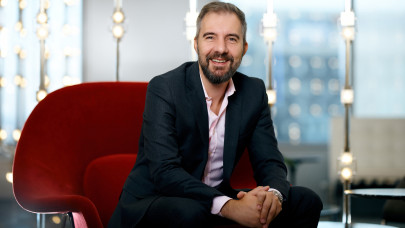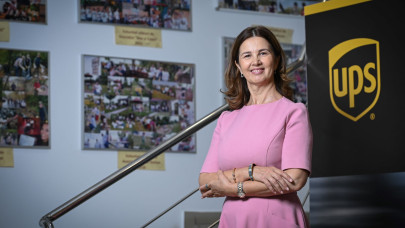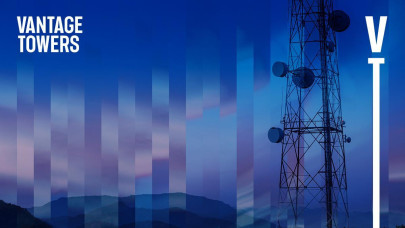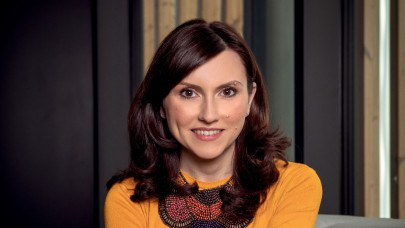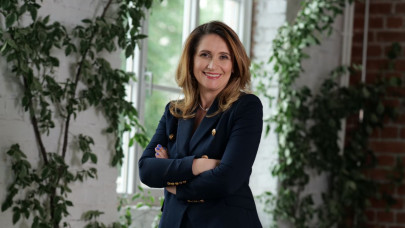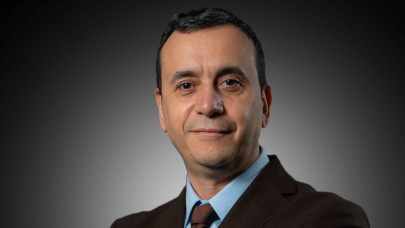What are Diageo's ESG plans and policies for CEE?
As a global leader in alcoholic beverages, we at Diageo believe that a fundamental part of our success is being responsible and using our resources to drive change. That's why we have been putting positive societal impact at the heart of our business strategy, through a complex 10-year ESG action plan called “Society 2030: Spirit of Progress” which outlines our commitments and actions for a more sustainable future.
Society 2030 addresses three of our key priorities: promoting positive drinking, championing inclusion and diversity, and pioneering grain-to-glass sustainability.
In our region, which covers 55 countries, we have a wide range of programs in cooperation with local partners and organizations to deliver tangible impact in our communities in these areas.
Sustainability has become increasingly significant for many businesses and companies. From your point of view, what are the biggest challenges/hurdles on your path towards achieving sustainability?
There are a multitude of complex issues that impede progress. From a business perspective, it can be economic pressure, especially in such volatile times, short-term focus, and lack of resources – be it financial or technological. I also believe regulations are crucial to incentivize and support sustainability efforts.
I believe the main reason why we are making progress at Diageo is that sustainability is deeply embedded in our strategy, our values, and our decision-making on all levels. We are fostering a culture of sustainability by involving our colleagues and making sure everyone understands that all of us have a role to play.
We set ambitious goals and standards for ourselves and we are constantly monitoring our progress and assessing our impact.
You have developed a concept – the Spirit of progress. Please tell us more about it. What do you plan to achieve? How does it apply to our part of the world (Europe and in particular CEE)? What are the achievements so far?
As I've mentioned before, our Society 2030: Spirit of Progress' has three priorities at its heart: responsible drinking, inclusion and diversity, and grain-to-glass sustainability.
On Sustainability, while we do not manufacture products in our region, we have made great strides in protecting our environment and restoring precious landscapes. Let me mention some of the recent and ongoing projects.
With CALL-Action, our river cleanup and waste management program with PET Cup in Ukraine's Transcarpathia region, we increased waste processing capabilities for over 100,000 people by purchasing new equipment and vehicles, installing waste collection points, and online education. Results have exceeded expectations despite the incredibly difficult circumstances, with over 724 tonnes of waste processed by March 2023, surpassing our two-year goal by 5% in less than 12 months.
As part of our partnership with PET Cup, we also support Tisza River cleaning initiatives in Hungary.
Our brands also play a key part in our sustainability efforts. For instance, in Hungary, we launched a tree planting initiative under Johnnie Walker with MyForest in line with the brand's efforts to reduce its carbon footprint and protect natural resources. Besides removing the gift boxes from JW Red and Black Label, we will plant 5,000 tree seedlings.
In Bosnia and Herzegovina, Johnnie Walker also launched 'Keep Planting' a tree planting project aimed to restore a precious land devastated by a forest fire. We pledged to plant 15,000 black pine seedlings, and the planting is already underway.
In November, we also joined a reforestation program in North Macedonia, working with the Borenka project to plant 2,000 trees around Berovo.
In Malta, we worked with a local NGO and more than 130 volunteers on a beach cleaning initiative and collected over 900 kgs of waste in two days.
We are extremely proud of these initiatives because we can make a real difference with the involvement of the local communities.
We hear a lot lately about positive drinking. Please explain its significance. Is it realistic to promote positive drinking when we can see so many negative effects of alcohol consumption?
We certainly believe so. Alcohol has been embedded into our societies, culture, traditions, and economy for centuries. As a premium drinks company, we cherish the excellent craftsmanship, the rich history, the local flavours and ingredients that make our products unique and beloved, as well as the important moments we celebrate with a toast.
On the other hand, we understand that we have a responsibility to empower consumers with information about the harmful effects of alcohol and promote moderation.
With our educational projects, we address serious issues such as underage drinking, drunk driving, or binge drinking. Just to mention a few of Diageo's most relevant initiatives in this regard. One of the most important tools we have is DRINKiQ, a one-stop platform where visitors can learn about the impact of alcohol, test their knowledge of alcohol, and assess their drinking habits.
This summer, we partnered with several festivals and cultural events across the region to promote moderation and encourage frequent hydration in the summer heat with DRINKiQ. At the Sziget Festival, for instance, we created a DRINKiQ Festival Survival Guide with tips for moderate drinking, had our reusable cups with moderation messages, and installed free water points to encourage festivalgoers to hydrate more.
Another exciting program we have is SMASHED, an interactive theater experience for students aimed at tackling underage drinking. This initiative utilizes the power of interactive theater to educate young people on the dangers of alcohol in their language. During the performances, played by professional actors, the students can explore themes such as the social and emotional causes of alcohol abuse, its impact on decision-making, and how they can seek help for themselves and others.
With Smashed, we want to educate 10 million young people, parents, and teachers on the dangers of underage drinking worldwide by 2030 and we are approaching the 4 million mark.
Earlier this year we launched Smashed in Romania, together with Recul Independent Theater and Leaders Foundation. In the initial phase, we reached a significant audience, over 2,000 high school students from Bucharest and the surrounding areas. In Hungary, more than 10,000 people have participated in the program. We have received amazing feedback from schools and students.
Changing attitudes to drunk driving is also very close to our hearts. Together with the United Nations Institute for Training and Research (UNITAR), we have launched our interactive online video experience, ‘Wrong Side of the Road' to help consumers understand the effects of alcohol, the consequences of drunk driving, and the stigma that come with it with real-life examples from drunk drivers.
For our latest anti-drink driving campaign, we teamed up with Attraction Shadow Theatre Group to tell an emotional and powerful story about the tragic consequences of drunk driving with our short film, Dance of Responsibility which is available on YouTube with more than 5.5 million views.
Promoting moderation and mindful drinking is really at the core of what we do. Our brands and marketing activity certainly play an important role in carrying this important message in bold and creative ways. By 2030, we wanted to reach 1 billion people with dedicated responsible drinking messages by leveraging our world-class marketing. We are proud to have achieved our target ahead of schedule, having reached more than 1.4 billion people in total with messages.
I'd be remiss if I did not mention that 0.0% alcohol products are also becoming increasingly popular for consumers as a means to make balanced choices and our portfolio of brands is reflecting that direction.
Diageo promotes itself as a champion of inclusion and diversity. What are your goals in this regard and what are the achievements so far?
Indeed, diversity and inclusion are really at the heart of what we do, from the diverse talent we recruit and develop to the way we source services and portray diversity through our brands. We are determined to nurture an inclusive and diverse culture where everyone can belong and thrive – not because it is expected these days, but because it is the right thing to do.
We promote inclusion and diversity in every sense, from gender, ethnicity, age, and disability to sexual orientation, social background, and education – and we're proud of the progress we're making. The representation of women in leadership positions is a crucial step in that. We'd like to have 50% representation of women in leadership roles by 2030, and it is fair to say they we are on the right track, standing at 44%, including our Executive Committee and our CEO Debra Crew.
Our brands have a huge role in shaping a more inclusive society. For instance, female empowerment has been a really important cause for Johnnie Walker. In our region, we were proud to launch the ‘Keep Walking' campaign to break down stereotypes, shine a light on inspirational women, and encourage other women to tell their own stories.
We're recognized for our gender equality work by the FTSE Women Leaders Review, Bloomberg Equality Index, and others. In 2023, the Equileap Gender Equality Global Report ranked us second overall globally and first in the UK for gender equality.
As far as ethnic diversity is concerned, we aim to increase the representation of leaders from ethnically diverse backgrounds to 45% by 2030. We employ over 30,000 people of 115 nationalities in over 70 countries which means we have a workforce whose diversity reflects that of our consumers and markets.
The more barriers we remove and the progress we make, the more strongly we connect with our consumers and the more diverse our thinking becomes, fueling our creativity and competitiveness.
Since Diageo is a global company, how do you integrate the grain-to-glass concept – which is more about partnerships with local communities? Is it effective? Does it work from the perspective of a giant company?
This is certainly one of the most fascinating aspects of working at Diageo where the effective use and preservation of precious resources meets tradition, craftsmanship, and cutting-edge innovation and technology. We have integrated a "grain-to-glass" sustainability concept across our entire business operations and partner network. The concept emphasizes a holistic approach to sourcing and producing alcoholic beverages, taking into consideration the entire supply chain from raw materials to the final product.
Our sustainability work is divided into three main areas: Preserving water, our most precious resource, accelerating to a Low Carbon World, and becoming Sustainable by Design.
We strive to drive water stewardship across the supply chain, our sites and operations as well as our local communities with water use efficiency as one of the key parameters. Our ambition is to reduce water use in our operations with a 40% improvement in water use efficiency in water-stressed areas and a 30% improvement across the company.
We also aim to become net zero carbon, use 100% renewable energy in our direct operations, and achieve a 50% reduction in supply chain emissions by 2030. We constantly innovate to minimize the impact of our products.
Regarding sustainable design, we are reimagining our packaging, eliminating waste from our value chain, reducing single-use materials, shifting to widely recycled materials, sustainably sourcing paper, and creating innovative solutions to grow sustainably. We are striving toward a more circular model which also includes regenerative agriculture.
We are making our agricultural supply chains economically, socially, and environmentally sustainable – supporting local farmers, and securing local supplies.
Also, Diageo has globally improved packaging by 22% against the target of 40% by 2030.


